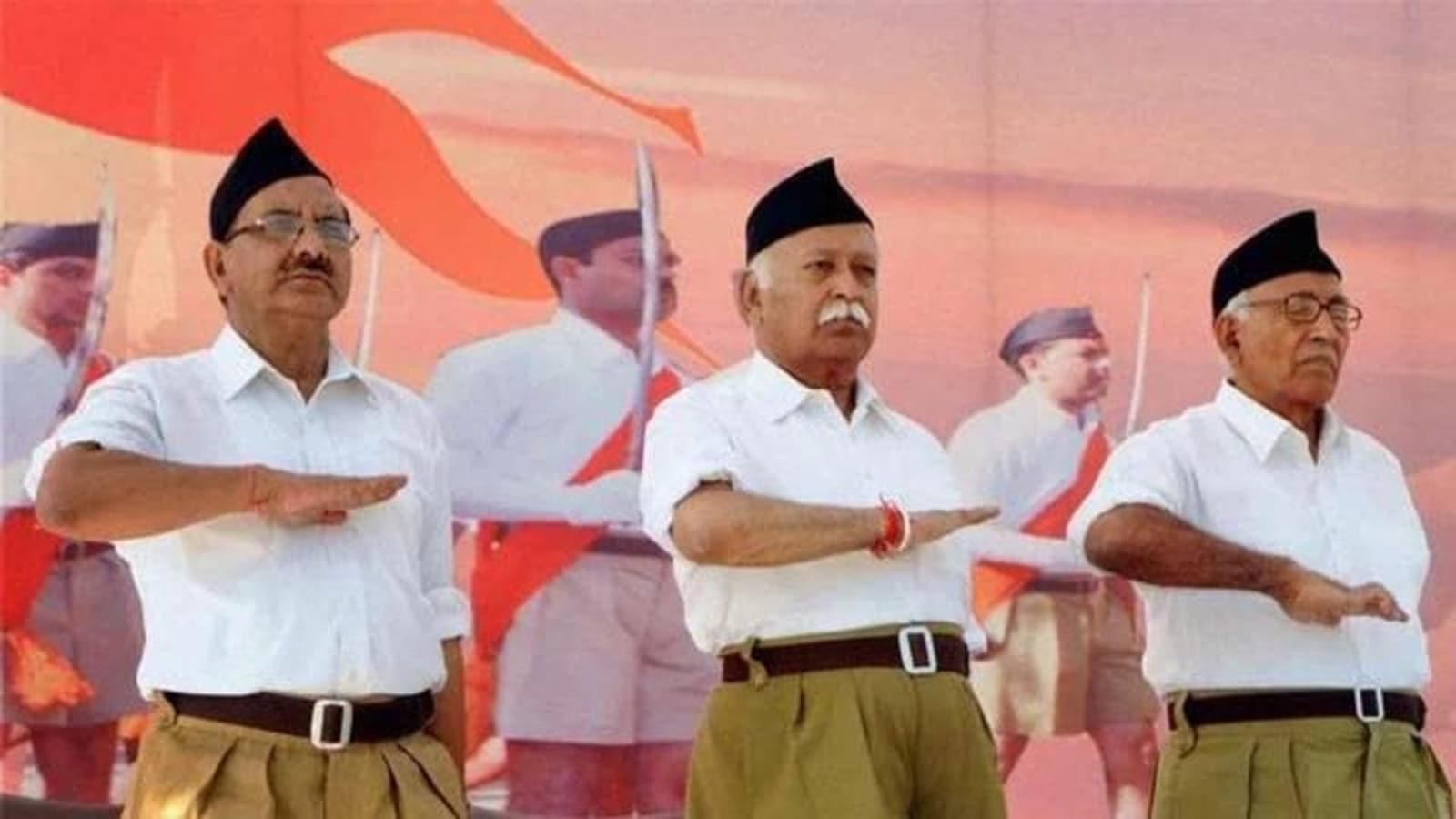Row Triggered As The Ban On Government Personnel Participating In RSS Activities Is Lifted After 58 Years; Cong Questions The Motive Behind This Action And Asserts That “Bureaucracy Can Come In Knickers”
Following a large-scale anti-cow-slaughter demonstration by Rashtriya Swayamsevak Sangh-Jana Sangh before the Parliament, during which numerous people were killed by police gunfire, this ban was imposed on November 7, 1966.

The opposition and the Bharatiya Janata Party (BJP) are having a political debate in response to the government of India’s controversial decision to remove the ban on government employees taking part in Rashtriya Swayamsevak Sangh (RSS) activities.

In a post on X (formerly Twitter), BJP spokesman Amit Malviya said, “The Modi government has withdrawn the unconstitutional order issued 58 years ago, in 1966, imposing a ban on government employees taking part in the activities of the RSS.”
A major anti-cow-slaughter demonstration took place at the Parliament on November 7, 1966, which led to the imposition of the ban. The RSS-Jana Sangh garnered millions of supporters. Police shootings claimed several lives. According to him, Indira Gandhi forbade government employees from joining the RSS on November 30, 1966, after the organisation’s influence shook her. He also mentioned that it was incorrect to authorise the order.

The Ministry of Personnel’s direction was described as a “very unfortunate move” by Congress MP KC Venugopal, who also said that the BJP-led federal government was not paying attention to the people’s decision.
AIMIM president Asaduddin Owaisi also opposed the government’s move to loosen the ban on government employees participating in RSS activities. He said that everyone who is a part of this organisation swears to uphold Hindutva over national interests. If a civil officer belongs to the RSS, he cannot be loyal to the country. Adding on to this he also mentioned how RSS “rejects” the national flag, constitution and song thus posing a threat to India’s integrity and unity.
Congress General Secretary Jairam Ramesh slammed the Union government, claiming that the constraint, which had been in place even under former Prime Minister Atal Bihari Vajpayee, had been lifted on July 9.
The Congress leader recalled that Sardar Patel, who outlawed the RSS in February 1948, later reversed the ban on promises of decent conduct. Even after this incident, the RSS never hoisted the Tiranga in Nagpur. He stated that government employees were prohibited from participating in RSS activities in 1966, which was a justifiable decision.

“The bureaucracy can now come in knickers too, I suppose,” he continued. He also mentioned that the relationship between the Rashtriya Swayamsevak Sangh and the self-proclaimed “non-biological PM” has suffered dramatically.
This was evident after the 2024 general election verdict where the BJP terribly failed to keep up with their “Abki baar 400 paar” jumla. An RSS-linked magazine called the results a “reality-check” for the overconfident BJP workers. Ratan Sharda, a Rashtriya Swayamsevak Sangh worker had then mentioned how that party failed to engage with the swayamsevaks (volunteers) at the grassroots level because they were overconfident and busy in show-off.

The BJP is attempting to regain its lost and unsettled electoral base by lifting the prohibition on government employees’ involvement in Rashtriya Swayamsevak Sangh’s operations. We wonder what more this government will do in years to come to gain back the lost faith that people had in them. Will anything be positive, only time will tell.




